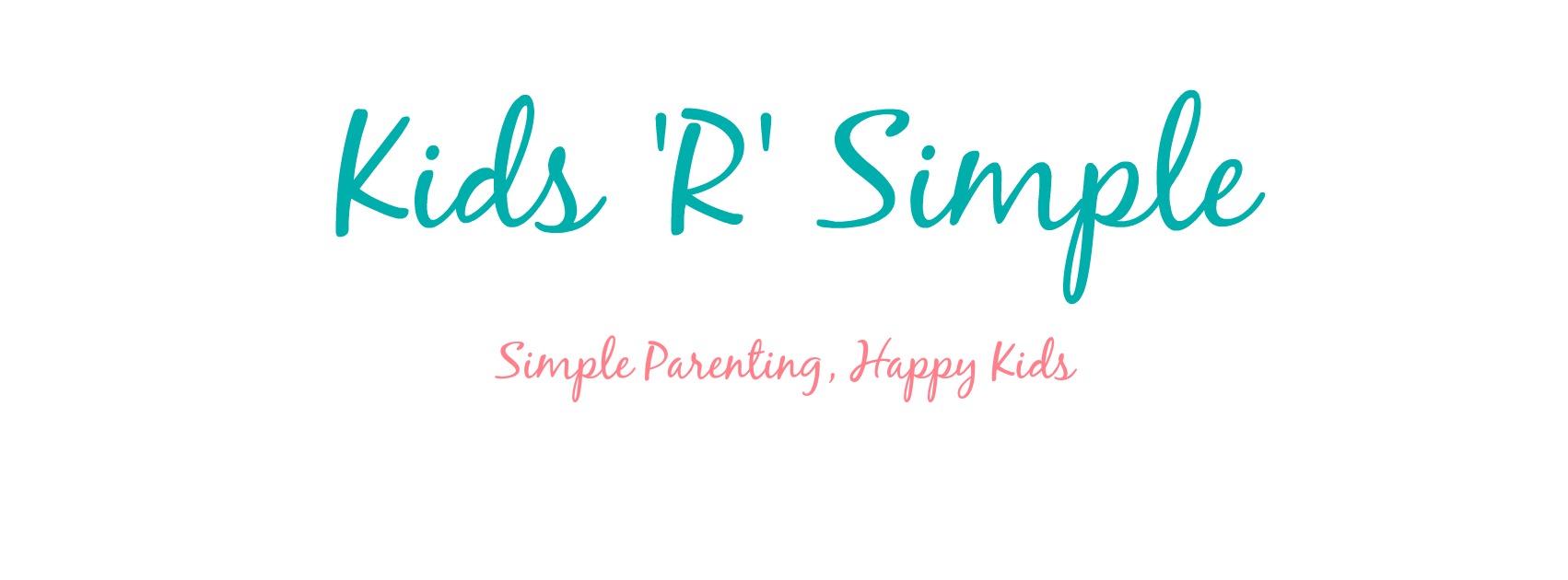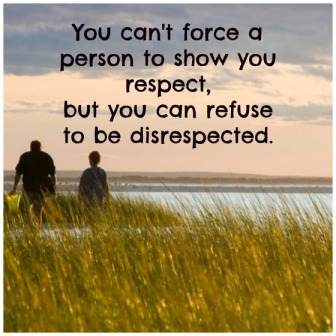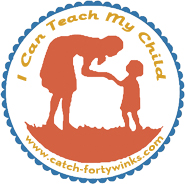One thing I cannot stand in raising my kids is any display of disrespect and discourtesy. Can you tolerate “What??!!”, “So??” in a defiant tone with eyeballs rolling? What do you make out of a kid who never greets you nor say goodbye when you leave his house? How do you feel when the parent herself doesn’t see you out of her house? And how do you like it if a nephew calls you by your name?
I certainly cannot tolerate any of these rudeness in kids and cannot imagine how they will turn out when they become adults and parents. My kids are guilty of some of the above mentioned at some point in time. Kids being kids pick up unacceptable behaviour easily from their peers. It hits me hard when I still see my kids displaying rude behaviour after many years of teaching. But I am determined to continue correcting and teaching them till these values are deeply rooted into them. Teaching is a never-ending process.
1. Addressing siblings by birth order names
In our home, we emphasize greatly on Chinese values. We raise our kids not to address older siblings or cousins by their names. They have to call each other by hierarchical birth order. XX, being our first born has to call her elder female cousins as 表姐 (Chinese greeting of elder female cousin. In Chinese, we call out specific proper hierarchical names depending on paternal or maternal side of relatives. There is a proper name for father’s sister or brother and another name for mother’s sister or brother.). When YH was born, he was taught to call his elder sister as 姐姐 (older sister). Then he had to call his 3 elder female cousins as 大表姐, 二表姐, 三表姐 (Chinese names of First cousin, Second cousin, Third cousin). When their younger male cousin was born, they called him either 表弟 or his name. The elder siblings or cousins are allowed to call the younger siblings’ by their given names but not the other way round. It’s important that my kids are greeted similarly. So when one of my nieces does not address my kids by the proper name, I will teach her to and remind her constantly. Even if the parent forgets or thinks it’s ok to let her child be, I will still teach her child to address my kids properly and not by their names. If my kids practise a respectful greeting, they should deserve to receive the same respect from younger cousins. We have to grasp Asian values and pass down to our young or else these values will be fast eroded with Western influence which usually emphasizes more on equality than hierarchy.
2. Bon Appetit before meals
We teach our kids to say Bon Appetit in Chinese before each sit down meals. They have to call each and every one by hierarchical names to “eat” regardless if everyone is at the table or not and, regardless of how many people there are. The youngest will have to call out one round of Chinese Bon Appetit to those elder than him. So he will have the longest list to call out before he can start his food. Sometimes, my kids are lazy and follow other kids to go the shortcut way of saying “Everybody EAT”. It only took once for me to accept this and it was then difficult to revert to calling out individually after that. But recently I had told them sternly that they shall be calling each name no matter how many people there are. When it is only our own family, I insisted XX to say Bon Appetit to her brother YH since he is the youngest at the table and no one to say to him. The toddler YT certainly could not form the words “Bon Appetit” to his brother yet. You may be wondering why my insistence on such a hassle? I want my kids to learn respect and courtesy and it is best to learn it at the dining table.
3. Greetings in the morning and greetings back home
I am the role model to my kids and I want desired behaviour to be reciprocated. Early in the morning, I greet my kids in a sing-song way “Good morning XX! Good morning YH!”. When I am back home, I greet my kids individually as well. When the kids come back home from school, they have to go to the rooms to find their father and me to greet us. I love how the Japanese do it. They greet out loudly,“Tadaima!” the moment they open the door and everyone knows who is back home. I think such greetings bring a family together in a respectful way. I have seen adults ignoring their own parents when they come home. I certainly do not want my kids to treat me this way when they are older.
4. See guests out the door
I am working hard on this one with my kids. Kel and I always make an effort to see our guests out of the door and thank them for coming. However, my kids do not seem to catch our friendly gestures and continue playing at where they are, and simply shouted, “Bye Bye!” to the guests. I think that is inappropriate. I have been trying to get them to the door each time our guests leave. Now, they are starting to get it. Then I want them to say “Thank you for coming.”, they seem reluctant and it’s a little embarrassing. I will continue to drill these courtesies into them till they do it naturally. They are still young enough to be trained.
5. Greeting the teacher and saying sorry when late for class
If you are a teacher with a class of students, and a parent and her child open the door and quietly join in the class without acknowledging you, how do you feel? Now, some people may think that’s alright and they are trying to minimize disturbance to the on-going lesson. But for me, even if I have to disrupt the class, I have to greet and apologize to the teacher for being late. That is my respect to the teacher.
6. Say “Thank you” to the cleaners who clear our table
How many of you thank the cleaners who clear your table after a meal at a food court? I do. And I make it loud enough for my kids to hear it. I don’t really demand my kids to do it. But I do tell them that it is polite to do so. Recently, in Singapore, we are trying to be a gracious society by clearing the table ourselves. But sometimes the cleaners beat us to it. So, it would be a good opportunity to teach my kids to show respect to people doing a service for us.
It is easy to teach kids respect and courtesy when they are very young. Once they reach the defiant teens age, it will be difficult to start teaching manners and respectful behaviour. If you want others to respect you, you have to show respect to others first. In Chinese, we often scold people who are rude or disrespectful as “没家教!” which means their parents had failed in teaching them well. I hope my kids will never be scolded this way. The responsibility of bringing up respectful and courteous children lies greatly on the parents.
Do you emphasize on your own traditional values? How do you teach respect and courtesy to your kids? Share with me in the comments!
Linking up with




There’s definitely a number of differences in protocol here between the traditional Chinese way and what we feel is polite. With my kids having to move from one protocol to another the details get confusing, so I try to emphasise showing thoughtfulness and good intention.
I do find it a struggle because unfortunately thoughtfulness of others isn’t natural to young children (developmentally impossible for the very young) and I think it’s one of those things I have to keep banging my head against, and it’s especially hard for them to understand when they genuinely differ from others in the way they enjoy being treated. But in the long run the most important thing is that everyone works to get along, so I guess more head-banging for me it is .
.
Oh, I am sure your kids may get confused! Just like that adults right of seats in the train over the kids in Australia! True that showing thoughtfulness and good intention is the equivalent of courtesy and respectful behaviour. Young toddlers have no sense of whatsoever acceptable behaviour, but even then, though we are talking to walls, it’s still important to teach them from young. It’s easier to pick up bad manners than good ones. No wonder it’s a struggle for all parents!
Yes, the seats is a good example! Bad manners tend to be more immediately self-reinforcing so it is a slow struggle until they can come to understand a broader and more long-term view. Sometimes I do wonder how much is parental teaching, how much is normal development you just have to be patient with, and how much is genetics, but I guess you have to do your best and hope the other stuff falls into place! It’s just frustrating when you can’t see much difference from day to day.
I love that you are teaching values and respect. We always see our guests to the door, and when it is Mr. T’s guest, he walks them out. Also, we don’t just see them to the door, we watch and make sure they get in the car and that the car starts!
I don’t know if I purposely taught Mr. T, but when he walks in the house he always announces himself. Sometimes it’s just ‘hey, I’m home’, but frequently, he comes in a very boldly states “Mother, I am home!” It cracks me up. I think that I need to change up my announcement when I come in the house from “It’s just me, I’m back” to something more grandiose!
Seeing guests out the door is so important! That shows how much we really love to host them. I think Mr T caught the behaviour from you. We are a constant role model to our kids and manners are best caught than taught!
Wow, greeting everyone elder at the dinner table is really difficult, and (ashamedly) I also can’t do it. I always go with the “Lets all eat”. Hahaha…. But we do try to teach the kids to call their cousins according to their “ranking” but when it reach their Biao Shu(s) it get a little difficult. So we ended up with just names + “Biao Shu”.
But I think thanking the cleaning lady is very important. And also those who help you open the door or hold the lift door. I find that even adults this days take all these for granted.
Oh yes, I forgot about this one about thanking those who hold the lifts for you. I always do it and hope my kids will pick up eventually. Calling names + rank names together is respectful too. We does that to differentiate so many uncles and aunties. Thanks for dropping by!
I am all for manners in children and I think it is now when they learn for the rest of their lives…so why do so many people make excuses for then when they are young? “they are shy etc”
I expect my boys to be polite to elders, use please and thank you, hold doors for their elders/friends and generally be nice children. It is harder to teach manners but boy does it pay off when they are older, I get so many compliments from friends when the boys stay over at their place and that makes me very proud- keep going!
That’s my wish that my kids will be complimented when they go over to friend’s house in future. You must have taught your kids well! It’s true we should not make excuses for kids. They ought to learn from young. But we have to continue teaching till they do it naturally.
Totally correct !! It is our duty as parents to instill these mannerisms to our kids…else how will they know. Now a days such things are diminishing and I find it disrespectful and offending when parents overlook such important things.
Thank you for this wonderful post! God bless you and your wonderful family!
Exactly! I think parents should never brush off teaching kids respect and courtesy. They are so important and will certainly affect how others view them in future. I believe it is part of good bringing.
Beautiful sharing Christy, thank you! Me too emphasizing this culture in my family especially for my two boys 9 and 2.5 years old. I totally go with you as we should embrace and keep our Chinese values. Gladly I have been practicing most your practices but must improve on the salutations to relatives, not an easy tasks ha ha. My prayers is that my boys will show respects and keep Chinese culture and values and pass down to next generations. Although my elder boy claimed himself as English boy when he was 5 years old, cos he could not speak Chinese much at that time and because he thought he has a English cousin making him convince that he is a English boy, faint..lol! Let’s continue patiently reminding them of the respect actions they should have as a life style.